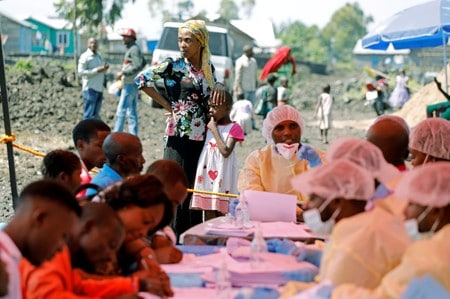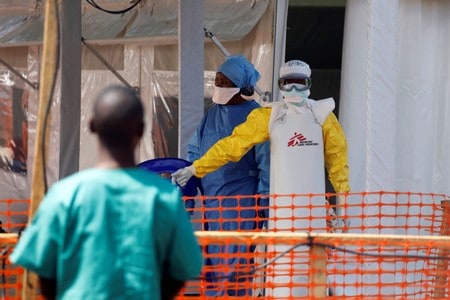By Fumbuka Ng’wanakilala
DAR ES SALAAM (Reuters) – Tanzania on Tuesday summoned the World Health Organization’s local representative over its assertion that the government refused to share information on suspected Ebola cases, signalling displeasure at the agency’s rare public rebuke.
Transparency and speed are key to combating the deadly hemorrhagic fever because it can spread rapidly. Anyone deemed to have been in contact with potentially infected people must be quarantined and the public warned to step up precautions such as handwashing.
WHO said late on Saturday it was made aware on Sept. 10 of the death of a patient in Dar es Salaam, and was unofficially told the next day that the person had tested positive for Ebola. The woman had died on Sept. 8.
On Tuesday government spokesman Hassan Abbasi said on Twitter that WHO country representative Tigest Ketsela Mengestu was summoned by deputy foreign affairs minister Damas Ndumbaro, in the commercial capital Dar es Salaam.
“The representative insisted that the WHO has not declared that there is Ebola in Tanzania, nor does it have any evidence on that and pledged to cooperate with the government,” Abbasi said.
“During the talks, the WHO agreed to strictly follow guidelines outlined by the agency itself and ratified by the government if it wants to get any additional information from the Tanzanian government.”
In its weekend statement, WHO said it was unofficially told that Tanzania had two other possible Ebola cases. One had tested negative and there was no information on the other.
Officially, the Tanzanian government had said in the previous week it had no confirmed or suspected cases of Ebola. The government did not address the death of the woman directly and did not provide further information.
Tanzania’s health minister said on Sept. 14 that the government had investigated two recent cases of unknown illnesses, but they were not Ebola.
The WHO made its weekend announcement days after the head of a U.S. government health agency travelled to Tanzania at the direction of America’s health secretary, Alex Azar. Azar criticised Tanzania earlier last week for not sharing information.[nL5N2692QD]
WHO spokeswoman Fadela Chaib told reporters in Geneva on Tuesday that the agency had not received any information after it had requested Tanzanian authorities to assess potential risks from the recent incidences.
She ruled out any punitive action, and reiterated that WHO had advised against any travel or trade restrictions based on the present circumstances.
“What we need to do is to continue communicating with them and provide them with help and expertise. We cannot sanction a country. It is not our mandate,” Chaib said.
(Additional reporting by Emma Farge in Geneva; Writing by George Obulutsa; Editing by William Maclean)



